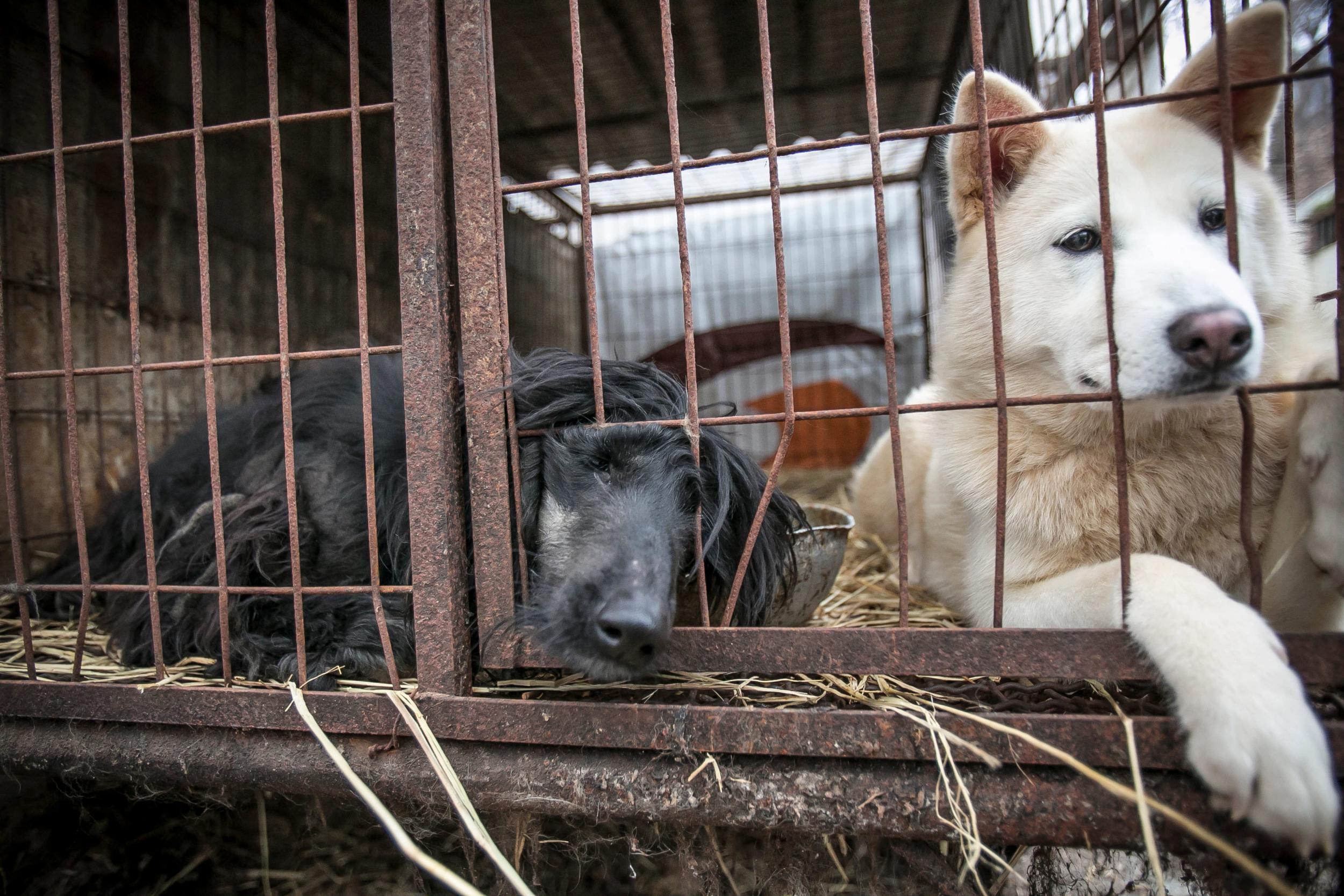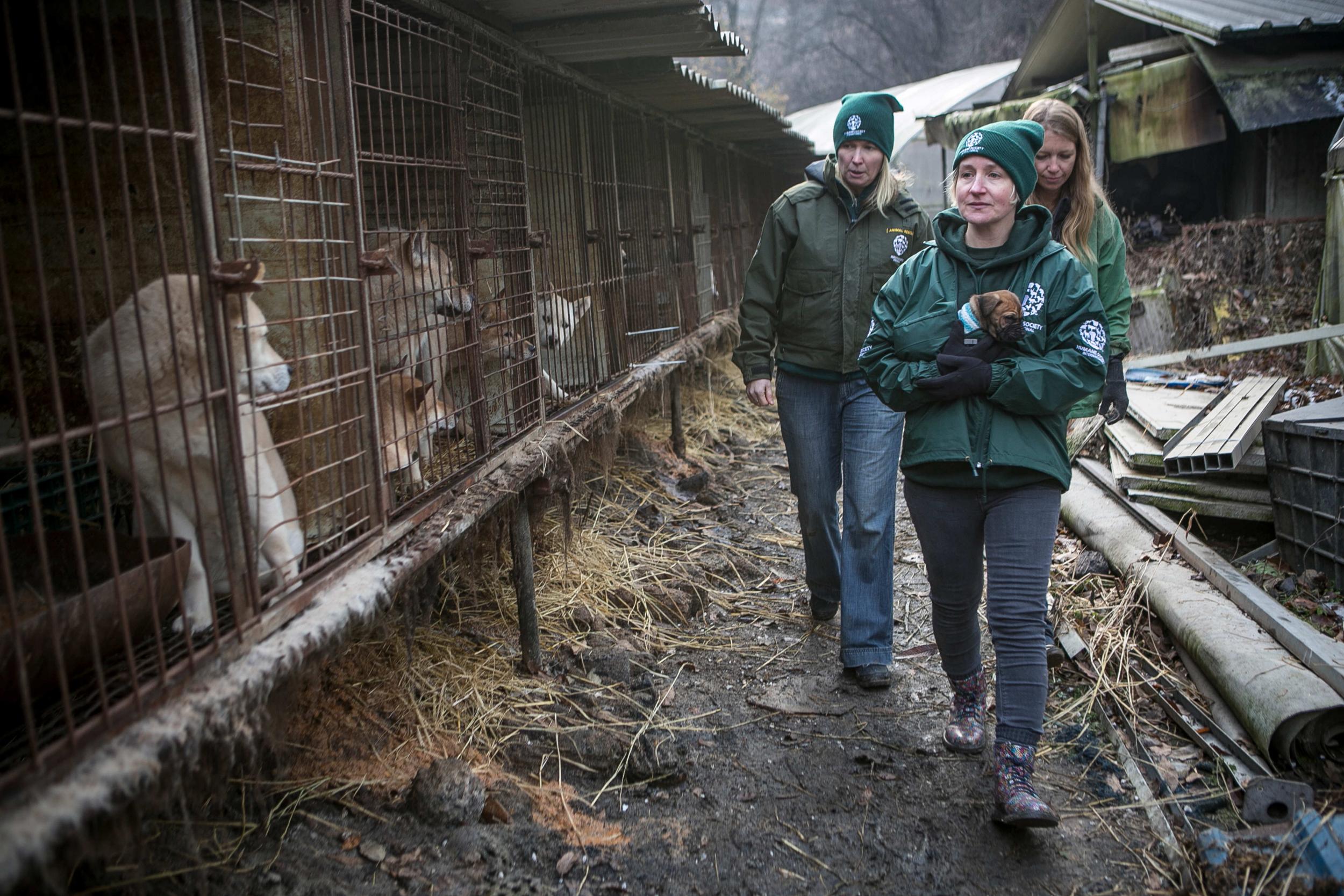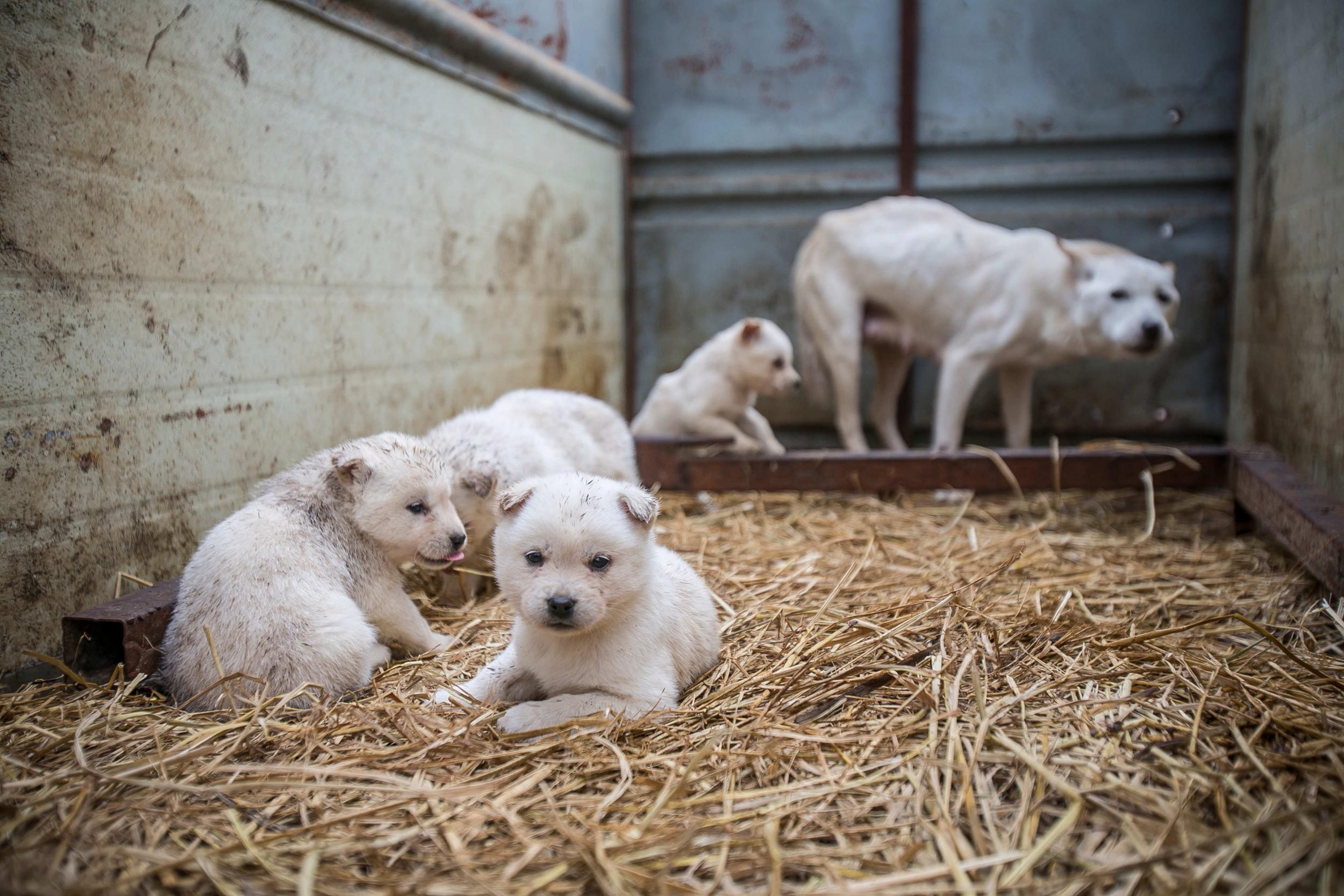More than 170 dogs rescued from 'atrocious' canine meat farm in South Korea
The animals will now be sent to homes in the UK, Canada and the US

Your support helps us to tell the story
From reproductive rights to climate change to Big Tech, The Independent is on the ground when the story is developing. Whether it's investigating the financials of Elon Musk's pro-Trump PAC or producing our latest documentary, 'The A Word', which shines a light on the American women fighting for reproductive rights, we know how important it is to parse out the facts from the messaging.
At such a critical moment in US history, we need reporters on the ground. Your donation allows us to keep sending journalists to speak to both sides of the story.
The Independent is trusted by Americans across the entire political spectrum. And unlike many other quality news outlets, we choose not to lock Americans out of our reporting and analysis with paywalls. We believe quality journalism should be available to everyone, paid for by those who can afford it.
Your support makes all the difference.Scores of dogs have been rescued from an "atrocious" meat farm in South Korea, where animal rights activists claim they had been destined to be electrocuted and cooked in soup.
More than 170 of the creatures were freed from squalid conditions in cramped wire cages at a facility in Namyangju, around 15 miles north-east of Seoul, according to the Humane Society International (HSI).
Golden retrievers, spaniels, beagles, greyhounds, Korean jindos and mastiffs were among the dogs released from captivity.
Many of the dogs were found to be suffering from eye infections, skin disease, and painful leg and paw sores after spending their entire lives exposed to the elements in tiny cages without veterinary care, HSI said.
They had been destined to be electrocuted at local markets or slaughterhouses, but will now be flown to Canada, the US and the UK for care and rehabilitation at animal shelters, it added.
An estimated 2.5 million puppies are bred for human consumption in South Korea each year, with many eaten in a spicy dish called bosintang.
But nation's younger generation is less accepting of the canine meat trade and animal rights groups are working to shut down farms.

“As a Korean myself, I’m hugely proud to be able to save these beautiful dogs and stop their daily suffering," said Nara Kim, HSI’s South Korea dog meat campaigner. "Most people in South Korea have no idea how atrocious these dog meat farms are and what physical and mental misery these animals go through."
She added: "I feel privileged to be able to show these dogs that humans can be kind not just cruel, and to make them feel safe and loved for the first time in their lives. Eating dog is already a declining habit in South Korea, but if people could see the sorrow of these dogs and the disgusting unhygienic conditions in which they’re raised, I think even more people would stop eating it.”
HSI has freed 1,222 dogs from 10 farms since it began campaigning in South Korea three years ago. It said activists worked closely with farmers to help them find alternative, humane livelihoods.

The farmer in Namyangju, named only as Kim, is to set up a construction business and use his land to grow vegetables.
"I originally started farming dogs because I heard it would make money, but now in South Korea even in the summer the trade has reduced by about one third," he said. "I also have a young child, and the dog farming business won’t look good for her because she really likes dogs."
HSI’s president, Kitty Block, said: “I’ve worked in animal protection for many years but I can tell you, seeing these dog farms for myself has been one of the most emotionally confronting things I’ve ever done."
Join our commenting forum
Join thought-provoking conversations, follow other Independent readers and see their replies
0Comments